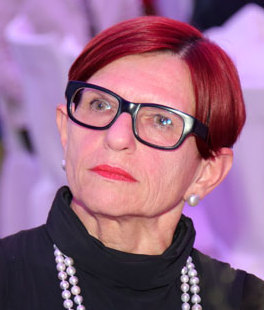Christine Mannhalter facts for kids
Quick facts for kids
Christine Mannhalter
|
|
|---|---|

Mannhalter at the 2014 Wittgenstein-Preis
|
|
| Born | November 9, 1948 |
| Nationality | Austrian |
| Scientific career | |
| Fields | Molecular biology, hematology |
| Institutions | Medical University of Vienna |
Christine Mannhalter is an Austrian scientist who studies how living things work at a tiny level (called molecular biology) and also focuses on blood and blood diseases (called hematology). She is a professor at the Medical University of Vienna, where she teaches about finding diseases using molecular tests. Since 2010, she has also been a vice-president at the Austrian Science Fund, which helps fund scientific research in Austria. In 2015, she became its temporary leader.
Early Life and Education
Christine Mannhalter was born in Hollabrunn, Austria, on November 9, 1948. She went to college to study biotechnology, which is about using living systems and organisms to make products or technologies. She earned her highest degree, a PhD, from the University of Vienna Medical School in 1977. This school is now known as the Medical University of Vienna.
After getting her PhD, she continued her research as a postdoctoral fellow (a researcher who has finished their PhD) with another scientist named Sandra Schiffman. She worked at the University of Southern California Medical School from 1977 to 1979.
Her Career in Science
Professor Mannhalter has spent her entire career at the Medical University of Vienna. She started as a research assistant, helping with scientific studies. In 1985, she became an associate professor, which is a higher teaching and research position. By 2000, she became a full professor of Molecular Diagnostics in Clinical Chemistry. This means she became a top expert in using molecular methods to diagnose diseases in a hospital setting.
From 2003 to 2007, she was the leader of a scientific group called the Society of Thrombosis and Haemostasis (GTH). This group helps scientists in Germany, Austria, and Switzerland who study blood clotting and bleeding disorders. She has also been a vice-president at the Austrian Science Fund (FWF) since 2010, helping to decide which science projects get money. In 2015, she took on the role of interim president, meaning she was the temporary head of the organization.
What She Researches
Professor Mannhalter's research focuses on the molecular biology and genetics of vascular diseases. Vascular diseases are problems with your blood vessels, like arteries and veins. Her research team looks at the tiny details of how these diseases happen at the molecular level, including how genes play a role.
Her group has found specific mutations (changes in DNA) that are linked to how bacteria interact with platelets. Platelets are tiny cells in your blood that help it clot when you get a cut. Understanding these interactions can help scientists learn more about how certain diseases develop.
See also
 In Spanish: Christine Mannhalter para niños
In Spanish: Christine Mannhalter para niños
 | Bessie Coleman |
 | Spann Watson |
 | Jill E. Brown |
 | Sherman W. White |

